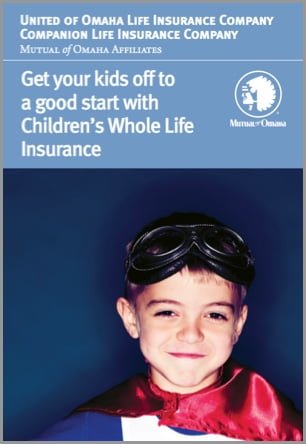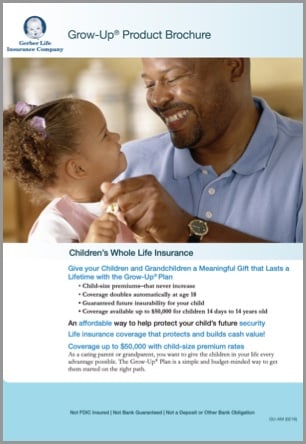Frequently asked questions
At True Blue, we are transparent and honest. We understand life insurance is a big financial decision, and we would never pressure you in making a decision.
For this reason, we’ve provided additional information with questions we often get asked, so you can be more informed and make your own decision.
If you’d like to speak with a licensed agent, give us a call at 1-866-816-2100. Our agents will be able to answer any life insurance questions you may have.
Should I get life insurance for my child?
Yes! Obtaining life insurance for kids can provide them coverage and benefits early in life at a much lower cost than waiting until they are older.
Your child doesn’t need life insurance for the same reasons you would buy life insurance for yourself. It has no spouse or dependents, but there are other reasons you should consider.
The child will lock-in the lowest life insurance rates possible, and since life insurance for children are not level term life insurance (life insurance for a specific period of time), the child can carry the insurance policy for their entire life.
The insurance plan will accumulate cash value, and while this cash value would not yield the same result as depositing the premium in a bank account instead, over time it will accumulate and it can be invested in stocks and other options.
Aside from the small side benefits, the biggest benefit of life insurance will always be that in case your child does decease, the financial burden that comes with it will be lifted off your shoulders.
While these various facts are advantageous, ultimately whether or not you should get life insurance for your child depends on your situation.
If money is tight, life insurance for your child could be an added unnecessary expense.
Can I get life insurance on my grandchild?
It’s no surprise that grandchildren are often the biggest joy of a grandparent, and as a result, grandparents often want to pave the road to a more secure future for their grandchildren.
Grandparents are eligible to purchase life insurance for their grandchildren, although whether they need the parent’s permission depends on their state.
If you – as the grandparent – buy life insurance on your grandchild, you will be the policy holder. You will be in responsible of making the premium payments, and you will be able to choose the beneficiaries.
Is cash value life insurance a good investment?
Life insurance that builds cash value is a wonderful benefit, but if your main goal is to create a financial nest for your grandchild, there are other investments that could prove more effective.
To give you an example, a $20 per month policy will grow to about $8,800 in cash value over 20 years. Considering you paid a total of $4,800 in premiums over that time, that is a net rate of return of about 4.7% per year.
Almost all of the growth in cash value takes place in the last ten years of that period. If you were to look at the same policy halfway through the term, even though you would have already paid $2,400 in premiums, you would only be able to access about $2,700 in cash value.
Doing the math, that’s an annual return of 1.94% – which is typically less than the annual rate of inflation.
With mutual funds and other investment options, investment returns are never guaranteed, but a 10% annual return is not uncommon.










